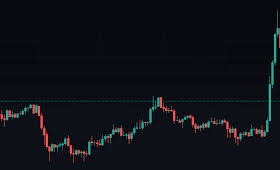If you run a business in the UK, you know the cost of running your factory or keeping the lights on in your shop is soaring. This crisis is forcing many small businesses to take drastic steps to cut costs. Some have seen their bills jump by as much as 10 times. In response to the problem, the Prime Minister is finalising a PS40 billion ($46 billion) package to combat the crisis.
Business energy is a major controllable overhead
Energy is one of the largest controllable overheads in office buildings, and even a simple change can cut energy bills by 20 per cent. This will not only cut costs but also help the environment and show customers and employees that you care. In fact, Carbon Trust, the leading UK energy charity, is a Principal Partner of the UN Climate Change Conference in Glasgow, which will discuss ways of achieving a more ambitious climate agreement.
Energy costs are a major component of the operating costs for any business, and are the third largest expense for U.S. businesses, according to ENERGY STAR. As a result, every finance manager should be taking a closer look at their energy bills. By using smart thermostats, businesses can lower energy costs.
Overhead costs can vary considerably between businesses. Some costs are fixed and others fluctuate, such as office equipment and shipping and mailing costs. Other overhead is semi-variable, such as utility costs. If you are unable to control overhead costs, you might have to adjust your prices.
Businesses have the right to choose their energy provider. This choice is crucial in ensuring that the commercial energy market is competitive. The right business energy expert can help you find the best rates.
It’s cheaper than domestic energy
There are several reasons why commercial energy is cheaper than domestic energy. One is that business customers have larger volumes and are better able to tailor their contracts based on their consumption, location and credit score. Domestic contracts are one-size-fits-all and have more price fluctuations. Additionally, businesses must pay the Climate Change Levy and pay a 20% VAT, which domestic customers do not have to pay.
A business is more likely to pay a higher VAT rate than a domestic consumer. However, the difference between domestic and business energy isn’t as large as you might think. For example, domestic tariffs charge 5% VAT, while business energy tariffs charge 20% VAT. In addition, businesses are required to pay a Climate Change Levy of 0.541p per kWh for gas and 0.188p per kWh for electricity. While commercial energy may be cheaper than domestic energy, these extra costs can make it difficult to find a deal that suits your business.
Another important reason for commercial energy being cheaper than domestic is the fact that business customers are more likely to lock in a longer-term contract. This will allow the business to budget more effectively and lock in lower prices. Often, businesses will choose to fix their rates for up to two years in advance. This means that they can make a significant savings in the long run.
It’s cheaper than deemed contracts
A deemed bill is 80% higher than the agreed business energy tariff. This means that you’re paying more money for your energy than is necessary. At the moment, 10% of microbusinesses are paying this way. The reason why these bills are so high is that there is no negotiation. If you don’t negotiate with your energy supplier, they are free to charge you the deemed rate.
Commercial Energy UK offers fixed rates for Water and Energy, which can save you money. However, these contracts only last for a certain term, and once this period expires, you’re left with out-of-contract rates. The best way to avoid these deemed rates is to switch as soon as you realise you’re paying too much.
In addition to their high prices, deemed energy contracts can be difficult to switch. Because you cannot switch suppliers during the duration of your contract, you’re stuck with their terms. Changing suppliers could cost you more or less. If you’re considering changing your energy supplier, it’s vital that you compare the prices of both types of contracts to see which is better for you.
As a business owner, it’s important to understand the difference between a fixed and a deemed contract. A deemed contract is more costly than a contract with a fixed term. A deemed contract is often the most expensive option, so make sure you shop around to find a cheaper option.











Leave a Reply